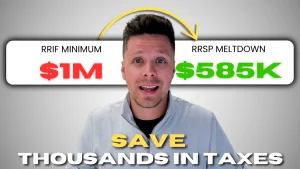You’ve been targeting the unreduced pension date that you’ve seen on your yearly pension statement for the last twenty years. It’s finally within arm’s reach and you are set on retiring on that exact date. You’ve put in the time and you’re tired of hearing Carl’s nonsense about the Jets around the water cooler.
As much as it drives you crazy, today I’m here to tell you why in some instances you should put up with Carl’s opinions on Big Buff for at least a few more months.
The Scenario
You’ve been plugging away at your job for the last 20 years and you’re ready to enter the next chapter of your life. You’ve decided that you’d like to retire on the earliest date on which your pension isn’t reduced. In this case, that date is November 1 and you expect your year-to-date income to be $100k. You’ve also decided that you’d like to withdraw the lump sum from your pension to be certain that you will have something for your estate if both you and your spouse pass away. You’ve been a hard worker throughout your career and will be retiring with of full 50 days of vacation as well as banked sick time.
The Issue
Upon retiring you will be paid out your sick time, vacation days, a potential severance, as well as the taxable portion of your lump sum pension. If you don’t have any RRSP room remaining, you will have no means to shelter this additional income.
Let’s assume that your sick time, vacation, and severance account for an additional $50k in income. Let’s also assume that the taxable portion of your lump sum pension is $200k. You’ve just added a quarter of a million dollars of income on top of the $100k you already earned in salary for the year. Remember the Liberals’ tax promises to protect the middle class? Well, you’re no longer middle class with an income of $350k and you WILL feel the tax consequences of it.
The Strategy
Instead of retiring on November 1, you might want to consider pushing your retirement to December 15. It should still give you time to get all your Christmas shopping done ;). Let’s assume your year-to-date income is $115k by that point. It usually takes a couple of weeks to receive payment on your vacation, sick days, and severance, which is still $50k. The pension takes a little longer to transfer over so that income will be taxed in the following year. Your income in the year you retire would be $165k ($115k salary + $50k in payments). Your income in the following year would be the $200k taxable portion of your pension.
The Payoff
As per current Manitoba and Federal tax rates, you can expect to pay $149,536 in taxes based on an income of $350k. However, if you split this income as per the strategy outlined above, your tax bill would be significantly reduced. You would be taxed $57,930 on an income of $165k in the year you retire as well as an additional $74,170 on your $200k income the following year. You’ve just saved over $17k in taxes by moving your retirement date out by 45 days. What’s even more stunning is you saved this money all the while earning an additional $15k over two years.
Wrapping it up
If you’re planning to retire in the near future, please keep this tax-saving timing strategy in mind. I’ve seen too many occasions of this simple strategy not being implemented resulting in countless dollars lost to taxes. As always, an extra dollar in your pocket is better than in someone else’s.







